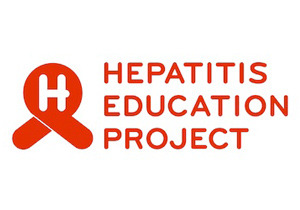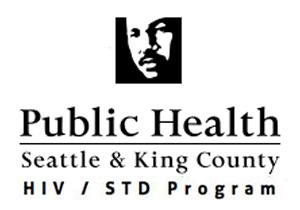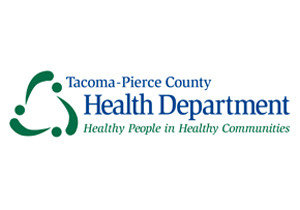Resource Topics
- Diet & Exercise
- Drugs & Alcohol
- Health Care & Health Insurance
- HIV / AIDS
- Mental Health
- Sex & Your Body
- Sexually Transmitted Infections
- Stigma & Discrimination
- Tobacco
- Violence
Sexually Transmitted Infections
STIs (also known as STDs) are infections that can be spread by sexual contact. Gonorrhea and syphilis rates are very high among gay and bi guys, and gonorrhea strains are growing resistant to antibiotics. Human Papilloma Virus (HPV) infections can result in cancers in your throat, penis, or anus. Some STIs, like herpes and HIV, have no cure. Many STIs have no symptoms.Condoms are great at preventing most STIs. Vaccines for HPV and Hepatitis A and B can stop infection before it starts. Antibiotics effectively treat most bacterial infections. Be sure to get tested at least once a year, any time you think you have symptoms of an STI, or if a sex partner has said you were exposed. It’s important to treat all STIs because many of them make it easier to acquire or transmit HIV.
Find local resources in
Find local resources in
More Information
Chlamydia
Bacteria that infect the throat, penis, or anus; curable by antibiotics
-
Chlamydia
Facts by the Centers for Disease Control (CDC)
Genital Herpes
Viral infection that causes blisters, irritation, and sometimes no symptoms; treatment can reduce symptoms and infectiousness; no cure available
-
Genital Herpes
Facts by the Centers for Disease Control (CDC)
Gonorrhea
Bacteria, sometimes called “the clap,” that infect the throat, penis, or anus; curable by antibiotics
-
Gonorrhea
Facts by the Centers for Disease Control (CDC)
Hepatitis
Several viral infections that harm the liver
-
Hepatitis
Facts by Public Health - Seattle & King County
-
Hepatitis A
Viral infection spread by oral contact with fecal matter, usually via improper hand washing after bowel movement, but also by rimming. Get the Hep A vaccine to protect yourself and others!
-
Hepatitis B
Viral infection spread by contact with blood, semen or other body fluids via sex or shared razors, toothbrushes or drug injection equipment. Get the Hep B vaccine to protect yourself and others!
-
KNOW More Hepatitis
Hep C information and testing campaign sponsored by CDC
-
Viral Hepatitis and MSM
CDC Factsheet
-
Hepatitis C
Viral infection spread by blood-to-blood contact and sometimes via sex; no vaccine available, but 85-90% of cases can be cured with new treatments
HIV - Human Immunodeficiency Virus
See our HIV page
-
Human Immunodeficiency Virus (HIV)
See our HIV page
HPV - Human Papillomavirus
A collection of dozens of viruses, some sexually transmitted, that cause genital warts and/or cancer in the throat, penis, cervix, or anus. If you’re 26 or younger, get the HPV vaccine to protect yourself and others!
-
About Genital HPV Infection
CDC
-
Human Papilloma Virus (HPV)
Facts by the Centers for Disease Control (CDC)
Pubic Lice aka “crabs”
Parasites that lay their eggs in pubic hair and cause irritation
-
Pubic Lice
Facts by the Centers for Disease Control (CDC)
Scabies
Mites that burrow under the skin and form itchy bumps
-
Scabies
Facts by the Centers for Disease Control (CDC)
Shigella
Bacteria easily spread through any form of anal sex, including intercourse, rimming and fingering. Symptoms include diarrhea (often bloody), stomach cramps and fever.
Health Alert: Currently Shigella is on the rise in King County, particularly among gay and bi men and their sex partners. If not properly treated, Shigella can be dangerous – especially to HIV+ individuals. If you’ve had diarrhea for 48 hours or longer, go see your doctor right away and get tested for Shigella. Refrain from sexual contact until advised by your physician.
- General info on Shigellosis
-
Shigella "Shit Storm 2016" Poster
For information about using our Shigella poster and other materials, contact Karen Hartfield at karen.hartfield@kingcounty.gov
-
Shigella "Shit Storm 2016" Poster (No logo)
For information about using our Shigella poster and other materials, contact Karen Hartfield at karen.hartfield@kingcounty.gov
Syphilis
Bacteria spread by oral, vaginal, or anal sex, skin contact, or contact with blood; curable by injected antibiotics; on the rise among gay/bi men, especially men who have HIV
-
Syphilis in Seattle
Awareness campaign about the rise in syphilis among gay and bi men in King County
-
Syphilis and Men Who have Sex with Men Factsheet - CDC
CDC
-
Syphilis
Facts by the Centers for Disease Control (CDC)
Other STI Information
Find information about other STDs and how STDs affect men who have sex with men










